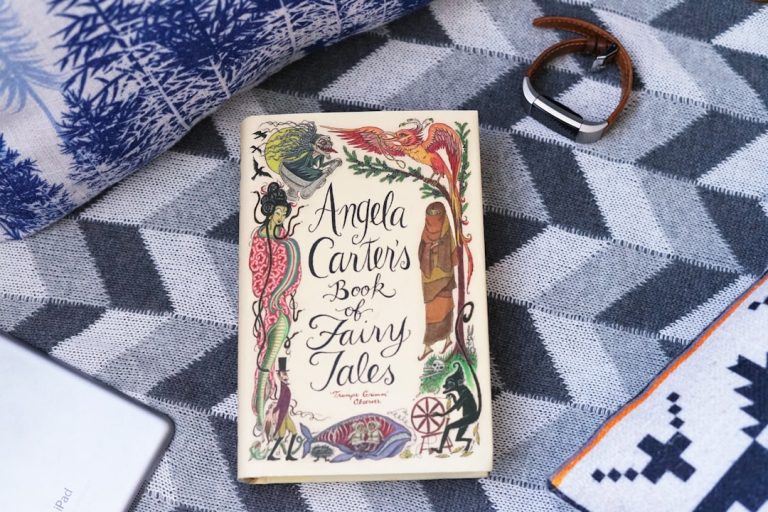
Short stories hold a unique position in the realm of language learning, particularly in the context of mastering English. Their brevity allows learners to engage with complete narratives without the overwhelming commitment that longer texts often require. This compact form of storytelling can captivate learners, making the process of acquiring a new language both enjoyable and effective.
The emotional resonance and vivid imagery found in short stories can stimulate learners’ imaginations, fostering a deeper connection to the language.
Moreover, short stories often encapsulate universal themes such as love, loss, and adventure, which resonate across cultures.
This universality can make the content more relatable and engaging for learners from various backgrounds. For instance, a story about friendship can evoke personal experiences, prompting learners to reflect on their own lives while simultaneously practicing their language skills. The ability to connect emotionally with the material enhances retention and comprehension, making short stories an invaluable tool in the language acquisition process.
By exploring different genres and styles, learners can also gain insights into various writing techniques and narrative structures, further enhancing their linguistic capabilities.
Key Takeaways
- Short stories are powerful tools for English language learning as they provide engaging and relatable content for learners.
- Choosing the right short stories for language mastery involves selecting stories with clear language, relevant themes, and cultural significance.
- Effective reading and comprehension strategies for short stories include pre-reading activities, active reading techniques, and post-reading reflection.
- Building vocabulary and grammar skills through short stories can be achieved by identifying and practicing new words and language structures within the context of the story.
- Practicing speaking and listening with short stories can be done through group discussions, role-playing, and listening to audio versions of the stories.
Choosing the Right Short Stories for Language Mastery
Selecting appropriate short stories is crucial for maximizing their effectiveness in language learning. The ideal stories should align with the learner’s proficiency level, interests, and cultural background. For beginners, simple narratives with straightforward plots and limited vocabulary are essential.
Stories like “The Gift of the Magi” by O. Henry or “The Little Prince” by Antoine de Saint-Exupéry offer accessible language while still conveying profound themes. As learners progress, they can tackle more complex narratives that challenge their comprehension and introduce them to richer vocabulary and intricate sentence structures.
In addition to considering language difficulty, it is important to choose stories that reflect the learner’s interests. A student passionate about science fiction may find more motivation in reading a short story by Philip K. Dick than in a classic romance tale.
Engaging with content that resonates personally can significantly enhance motivation and retention. Furthermore, incorporating stories from diverse cultures can broaden learners’ perspectives and foster an appreciation for global literature. This exposure not only aids language acquisition but also cultivates empathy and understanding of different worldviews.
Strategies for Effective Reading and Comprehension

To fully benefit from short stories, learners should employ effective reading strategies that enhance comprehension and retention. One such strategy is active reading, which involves engaging with the text through annotations, highlighting key phrases, and summarizing paragraphs in one’s own words. This process encourages learners to think critically about the material and facilitates deeper understanding.
Additionally, discussing the story with peers or instructors can provide valuable insights and alternative interpretations that enrich the reading experience. Another effective strategy is to read aloud. This practice not only improves pronunciation and fluency but also reinforces comprehension by allowing learners to hear the rhythm and intonation of the language.
Listening to audiobooks or recordings of short stories can complement this practice, as it exposes learners to native speakers’ accents and speech patterns. Furthermore, breaking down the story into manageable sections can help prevent overwhelm; learners can focus on understanding one part before moving on to the next, gradually building their comprehension of the entire narrative.
Building Vocabulary and Grammar Skills through Short Stories
| Short Story Title | Vocabulary Words Introduced | Grammar Skills Practiced |
|---|---|---|
| The Lost Key | discover, mysterious, treasure | past tense verbs, prepositions |
| The Magical Forest | enchanted, bewitched, mystical | adjectives, conjunctions |
| The Brave Knight | courageous, chivalrous, valor | nouns, pronouns |
Short stories serve as an excellent medium for expanding vocabulary and reinforcing grammar skills. As learners encounter new words within context, they are more likely to remember their meanings and usage. For instance, a story that describes a character’s emotions using vivid adjectives can help learners grasp nuanced meanings that might not be evident in isolated vocabulary lists.
To maximize this benefit, learners should keep a vocabulary journal where they note down unfamiliar words along with their definitions and example sentences. In addition to vocabulary acquisition, short stories provide opportunities to observe grammatical structures in action. By analyzing sentence construction within the narrative, learners can identify patterns and rules that govern English grammar.
For example, a story that employs various tenses can illustrate how verb forms change according to context. Engaging with these grammatical elements in a narrative context makes them more memorable than traditional grammar exercises. Learners can also practice rewriting sentences from the story using different grammatical structures, further solidifying their understanding.
Practicing Speaking and Listening with Short Stories
Short stories are not only beneficial for reading comprehension but also serve as excellent resources for practicing speaking and listening skills. After reading a story, learners can engage in discussions about its themes, characters, and plot developments. This practice encourages them to articulate their thoughts in English while also honing their conversational skills.
Role-playing scenes from the story can further enhance speaking practice by allowing learners to embody characters and explore dialogue in a dynamic way. Listening skills can be developed through various methods involving short stories. Audiobooks or podcasts featuring short stories provide an opportunity for learners to hear fluent English spoken at a natural pace.
This exposure helps them become accustomed to different accents and speech patterns while improving their listening comprehension. Additionally, learners can listen to recordings while following along with the text, reinforcing their understanding of pronunciation and intonation. Engaging with both spoken and written forms of the same story creates a comprehensive learning experience that strengthens overall language proficiency.
Writing and Analyzing Short Stories for Language Development

Analyzing Existing Short Stories for Language Development
Analyzing existing short stories is equally valuable for language development. Learners can dissect the elements of a story—such as character motivations, plot twists, and narrative voice—to gain insights into effective storytelling techniques. This analysis not only enhances their appreciation for literature but also informs their own writing practices.
Improving Writing and Communication Skills
By understanding what makes a story compelling or relatable, learners can apply these lessons to their own narratives, ultimately improving both their writing skills and their ability to communicate effectively in English.
Using Technology and Multimedia Resources to Enhance Learning
In today’s digital age, technology offers numerous resources that can enhance the experience of learning through short stories.
Websites like Project Gutenberg offer free access to classic literature, while platforms like Wattpad allow users to discover contemporary works by emerging authors.
Multimedia resources further enrich the learning experience by incorporating visual and auditory elements into storytelling. Animated adaptations of short stories or graphic novels can engage visual learners while providing context that aids comprehension. Interactive storytelling apps encourage users to make choices that influence the narrative direction, fostering engagement and critical thinking skills.
Additionally, online discussion forums or social media groups dedicated to literature provide spaces for learners to share insights and engage with others who share their interests.
Tips for Applying Short Story Techniques to Real-life Communication
The skills developed through engaging with short stories can be directly applied to real-life communication scenarios. One key technique is storytelling itself; being able to convey personal experiences or ideas through narrative structure enhances clarity and engagement in conversations. Learners can practice this by recounting events from their lives using elements they have observed in short stories—such as setting the scene or building tension—making their communication more compelling.
Furthermore, understanding character motivations and emotional arcs within stories can improve empathy in communication. By recognizing how characters respond to challenges or conflicts, learners can better navigate interpersonal interactions in real life. This awareness fosters active listening skills as they become more attuned to others’ feelings and perspectives during conversations.
Ultimately, applying these techniques not only enhances language proficiency but also enriches social interactions by promoting deeper connections with others through shared narratives and experiences.
If you are interested in using song lyrics for English language acquisition, you may want to check out the article on how to effectively use song lyrics for language learning. Just like short stories, songs can be a fun and engaging way to improve your language skills. The article provides tips and strategies for incorporating song lyrics into your language learning routine.
FAQs
What are short stories?
Short stories are brief works of fiction that typically focus on a single plot or theme. They are shorter in length than novels and often feature a limited number of characters and settings.
How can short stories be used for English language acquisition?
Short stories can be used for English language acquisition by providing learners with engaging and accessible reading material. They can help improve vocabulary, comprehension, and grammar skills, as well as provide cultural insights and opportunities for discussion.
What are some effective ways to use short stories for English language acquisition?
Some effective ways to use short stories for English language acquisition include reading and discussing the story as a group, analyzing the characters and themes, identifying new vocabulary words, and practicing writing skills by creating summaries or responses to the story.
What are the benefits of using short stories for English language acquisition?
Using short stories for English language acquisition can help learners improve their reading and comprehension skills, expand their vocabulary, gain cultural knowledge, and develop critical thinking and analytical skills.
Are there specific types of short stories that are more effective for English language acquisition?
While any type of short story can be beneficial for English language acquisition, stories that are written specifically for language learners or that focus on everyday situations and conversations may be particularly effective. Additionally, stories with clear and relatable themes can be helpful for language learners.



